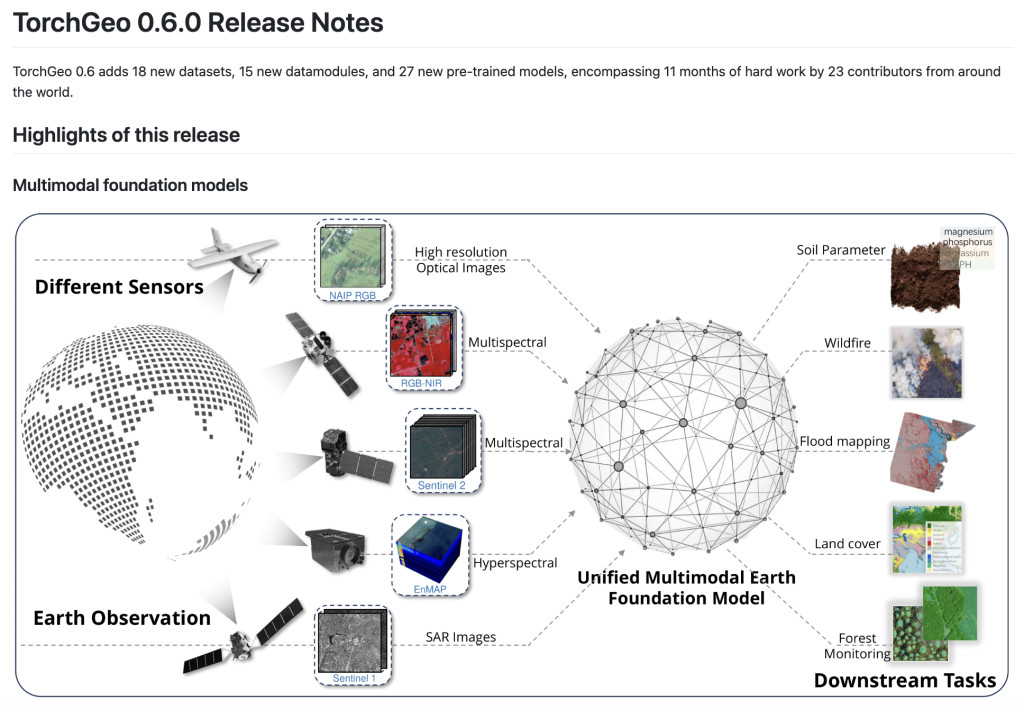Microsoft addresses the complex challenges of integrating geospatial data into machine learning workflows. Working with such data is difficult due to its heterogeneity, coming in multiple formats and varying resolutions, and its complexity, involving features like occlusions, scale variations, and atmospheric interference. Additionally, geospatial datasets are large and computationally expensive to process, while a lack of standardized tools has historically hindered research and development in this area.
Existing methods and tools for handling geospatial data are often fragmented and require expertise across multiple domains, making it difficult for machine learning practitioners to integrate this data into their workflows. There has been no comprehensive, standardized tool that provides a streamlined approach to data loading, preprocessing, and modeling for geospatial applications. The proposed toolkit, TorchGeo 0.6.0, offers an open-source, modular, extensible framework explicitly designed for geospatial data. It simplifies data handling and processing through curated datasets, samplers, transforms, and pre-trained models, each tailored to address the specific needs of working with remote sensing data.
TorchGeo 0.6.0 includes some novel features that make it a powerful tool for geospatial data analysis. The toolkit comprises a wide range of geospatial datasets in standardized formats, such as Sentinel-2, PlanetScope, and NAIP, which can be easily loaded via the API. To ensure data is ready for training and evaluation, TorchGeo 0.6.0 automatically handles data augmentation and normalization. The toolkit also includes various sampling strategies—random, grid, and stratified—designed to create balanced training sets that are beneficial for imbalanced datasets. Moreover, the rich collection of data transforms available in TorchGeo allows users to perform cropping, resizing, and other essential preprocessing tasks while offering specialized transformations for remote sensing data like cloud masking and spectral band combinations.Â
Microsoft also introduces pre-trained models for semantic segmentation, object detection, and classification, which can be fine-tuned for specific tasks, improving workflow efficiency. Its integration with PyTorch Lightning supports simplified training and evaluation, and it includes support for distributed training, allowing the use of multiple GPUs or machines. This comprehensive approach has significantly improved the efficiency and accuracy of geospatial data processing in machine learning workflows.
In conclusion, TorchGeo 0.6.0 represents a significant advancement in tools for handling geospatial data in machine learning. By addressing the problems of data heterogeneity, complexity, and computational cost, it enables researchers and developers to work more effectively with geospatial data. Its modular design, comprehensive dataset collection, and pre-trained models make it an invaluable resource for various applications, from environmental monitoring to urban planning. With this toolkit, researchers can focus more on innovation and less on the technical challenges of working with complex geospatial data.
The post TorchGeo 0.6.0 Released by Microsoft: Helping Machine Learning Experts to Work with Geospatial Data appeared first on MarkTechPost.
Source: Read MoreÂ

